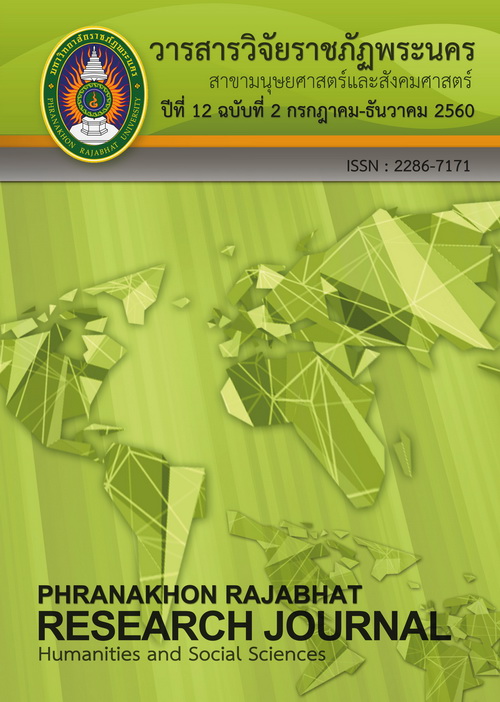THE DISCERNING TRAVELER AND SUSTAINABLE TOURISM IN ASEAN – A CRITIQUE
Main Article Content
Abstract
This academic paper examines current opportunities and challenges for tourism in the ASEAN region and discusses the need for sustainable approaches. After elaborating the ASEAN context, it investigates etiological linkages between the so-called ‘discerning’ traveler and sustainable approaches to tourism and provides a robust critique of these. In examining current trends in tourism theory and practice and while acknowledging serious criticisms of theoretical development in the area, the study explores the conceptual linkages between postmodernism, sustainability and development. Having explained the positive and
negative impacts of tourism, this paper introduces the notion of the postmodern ‘discerning traveler’ and positions this within sustainable tourism and current theoretical developments. It introduces a typology of discerning travelers and highlights the implications of each for tourism generally and in the ASEAN Economic Community (AEC), Greater Mekong Subregion (GMS), tourism authorities and companies. Finally, the study provides a critique of the notion of the ‘discerning’ traveler and examples of future research projects which examine how to embody sustainability and attract the high-end, low-impact discerning visitor.
Article Details
Each publish articles were copyright by Phranakorn Rajabhat University
Any contents which appeared in each articles in the journal were authors personal opinion. It did not relate to Phranakorn Rajabhat University and other instructors in the university. Each authors would take responsibility on their articles. If there are any mistake, the authors will take responsibility themselves
References
Studies, Singapore
Boniface, B. & Cooper, C. (2005). Worldwide destinations casebook – the geography of travel and tourism.
Burlington, MA: Elesevier.
Botteril, D. (2003). An autoethnographic narrative on tourism research epistemologies. Loisir et Societe,
26(1), 97-110.
Butler, R.W. (1999). Sustainable Tourism: a state-of-the-art review, Tourism Geographies. U.K.: Routledge.
Wong, J., Keyuan, Z. & Huaqun, Z. (2006). China-ASEAN relations: economic and legal dimensions. Singapore:
World Scientific.
Choibamroong, T. (2003). Knowledge of tourists’ behavior: a key success factor for managers in tourism business.
Retrieved October 2, 2010, from http://www.bu.ac.th/knowledgecenter/epaper/jan_june2006/Teardchai.pdf.
Coathup, D.C. (1999). Dominant actors in international tourism. International Journal of Contemporary Hospitality
Management, 11(2/3), 69 – 72.
Eber, S. (1992). Beyond the green horizon: a discussion paper on principles for sustainable tourism. Godalming, UK:
Worldwide Fund for Nature.
Foucault, M. (1980). Power/Knowledge: selected interviews and other writings 1972 – 77. Brighton: Harvester Press.
Franklin, A. & Crang, M. (2001) The trouble with tourism and travel theory?. Tourist Studies, 1(1) 5-22.
Hassan, N. (2008). Understanding the ‘new tourist’ of Asia: developing a global and local perspective. The Berkeley
Electronic Press.
Hughes, G. (2004). Tourism, sustainability and social theory. Oxford: Blackwell
Jefferson, A. (1995). Prospects for tourism: a practitioner’s view. Tourism Management, 16, (2), 101-105.
Jones, P. (2004). Finding the hospitality industry? Or finding hospitality schools of thought?. Journal of
Hospitality, Leisure, Sport & Tourism Education, 3(1), 33 – 45.
Krippendorf, J. (1997). ‘Behaviour and experiences while traveling’ in L. France (ed.) The Earthscan Reader
in Sustainable Tourism. London: Earthscan.
Lew, A.A., Hall, C.M. & Williams, A.M. (2004). A Companion to Tourism. Oxford: Blackwell
MacCannell, D. (1992). Empty meeting grounds: the tourist papers. London: Routledge.
MacCannell, D. (1999). The tourist: a new theory of the leisure class. University of California Press.
Mowforth, M. & Munt, I (1998). Tourism and sustainablity: new tourism in the third world. London: Routledge
Munt, I (1994) Eco-tourism or Ego-tourism?. Race and Class, 36(1), 49-60
Perionova, I. (2005). Where are you going, where have you been. Retrieves from http://www.inst.at/trans/16Nr/05_6/
perianova16.htm
Picard, M. (1996) Bali: cultural tourism and touristic culture. Singapore: Archipelago Press
Rabanser, U. & Ricci, F. (2005). Do they have a viable model in e-Tourism?. Information and Communication
Technologies I Tourism. Springer: Vienna. pp. 160-171
Semone, P. (2008). Mekong Tourism Office marketing plan 2008 – 2011. Mekong Tourism Coordinating Office,
Bangkok.
Singh, K. K. (2005). Green Travels: travelling through natural assets. Globally Managed Services: London.
Singh, T.V. (2004). New horizons in tourism: strange experiences and stranger practices. UK: Wallingford.
Taylor, S. & Edgar, D. (1999). Lacuna or lost cause? Some reflections on hospitality management. Research
Chichester: Wiley.
Tepalus, C. (2000). Aiming for sustainability in the tour operating business. International Institute for Industrial
Environmental Economics, Lund University, Lund, Sweden. IIIEE Reports, 16.
Tribe, J. (1997). The indiscipline of tourism. Annals of Tourism Research, 4(3), 638 – 657
Tribe, J. (2006). The truth about tourism. Annals of Tourism Research, 33(2), 360 – 381.
Urry, J. (2002). The tourist gaze. London: Sage.
Veal, A.J. (2002). Leisure studies at the millenium: intellectual crisis or mature complacency?. Journal of Hospitality
and Tourism Management, 9(1) pp.37-45.
World Travel & Tourism Council (WTTC) (2012). The economic impact of travel & tourism 2012. Retrieved from http://
www.wttc.org. London
Yeoman, I. (2008). Tomorrow’s tourist: scenarios and trends. Oxford, U.K. Elsevier Ltd.
Zahra, A. & MacIntosh, A. J. (2007). Volunteer tourism: evidence of Cathartic experiences. Tourism Recreation
Research, 32(1), 115 – 119.


